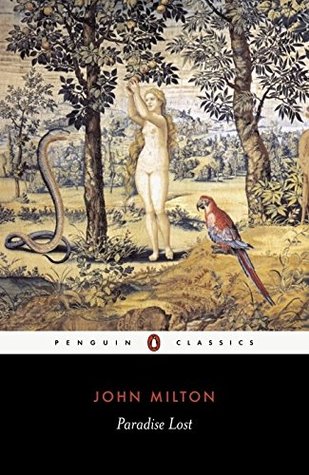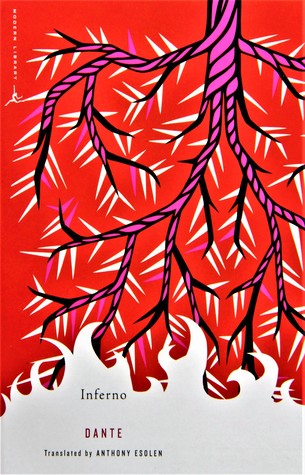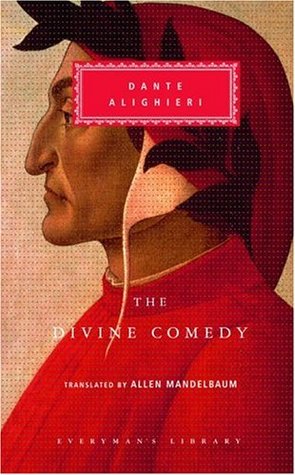Popular Epic Poetry Books
13+ [Hand Picked] Popular Books On Epic Poetry
Discover the list of some best books written on Epic Poetry by popular award winning authors. These book on topic Epic Poetry highly popular among the readers worldwide.

The Odyssey by Homer , Robert Fagles (Translator) , Bernard Knox (Introduction)
Sing to me of the man, Muse, the man of twists and turns driven time and again off course, once he had plundered the hallowed heights of Troy. So begins Robert Fagles' magnificent translation of the Odyssey, which Jasper Griffin in The New York Times Review of Books hails as "a distinguished achievement." If the Iliad is the world's greatest war epic, then the Odyssey is liter Sing to me of the man, Muse, the man of twists and turns driven time and again off course, once he had plundered the hallowed heights of Troy. So begins Robert Fagles' magnificent translation of the Odyssey, which Jasper Griffin in The New York Times Review of Books hails as "a distinguished achievement." If the Iliad is the world's greatest war epic, then the Odyssey is literature's grandest evocation of everyman's journey though life. Odysseus' reliance on his wit and wiliness for survival in his encounters with divine and natural forces, during his ten-year voyage home to Ithaca after the Trojan War, is at once a timeless human story and an individual test of moral endurance. In the myths and legends that are retold here, Fagles has captured the energy and poetry of Homer's original in a bold, contemporary idiom, and given us an Odyssey to read aloud, to savor, and to treasure for its sheer lyrical mastery. Renowned classicist Bernard Knox's superb Introduction and textual commentary provide new insights and background information for the general reader and scholar alike, intensifying the strength of Fagles' translation. This is an Odyssey to delight both the classicist and the public at large, and to captivate a new generation of Homer's students. -- Robert Fagles, winner of the PEN/Ralph Manheim Medal for Translation and a 1996 Academy Award in Literature from the American Academy of Arts and Letters, presents us with Homer's best-loved and most accessible poem in a stunning new modern-verse translation.
I WANT TO READ THIS
The Iliad by Homer , Robert Fagles (Translator) , Bernard Knox (Introduction)
The Iliad is one of the two great epics of Homer, and is typically described as one of the greatest war stories of all time, but to say the Iliad is a war story does not begin to describe the emotional sweep of its action and characters: Achilles, Helen, Hector, and other heroes of Greek myth and history in the tenth and final year of the Greek siege of Troy.
I WANT TO READ THIS
Beowulf by Unknown , Seamus Heaney (Translator) , Francis Barton Gummere
The earliest extant poem in a modern European language, "Beowulf" is an epic that reflects a feudal, newly Christian world of heroes and monsters, blood, victory, and death. This repackaged Signet classic Includes a Glossary of terms.
I WANT TO READ THIS
Paradise Lost by John Milton , John Leonard (Editor, Contributor)
John Milton's Paradise Lost is one of the greatest epic poems in the English language. It tells the story of the Fall of Man, a tale of immense drama and excitement, of rebellion and treachery, of innocence pitted against corruption, in which God and Satan fight a bitter battle for control of mankind's destiny. The struggle rages across three worlds - heaven, hell, and ear John Milton's Paradise Lost is one of the greatest epic poems in the English language. It tells the story of the Fall of Man, a tale of immense drama and excitement, of rebellion and treachery, of innocence pitted against corruption, in which God and Satan fight a bitter battle for control of mankind's destiny. The struggle rages across three worlds - heaven, hell, and earth - as Satan and his band of rebel angels plot their revenge against God. At the center of the conflict are Adam and Eve, who are motivated by all too human temptations but whose ultimate downfall is unyielding love. Marked by Milton's characteristic erudition, Paradise Lost is a work epic both in scale and, notoriously, in ambition. For nearly 350 years, it has held generation upon generation of audiences in rapt attention, and its profound influence can be seen in almost every corner of Western culture.
I WANT TO READ THIS
The Aeneid by Virgil , Robert Fitzgerald (Translator)
The Aeneid is an epic poem written by Virgil in the 1st century BC. It's hero is Aeneas, a Trojan who travels from Troy to Italy to eventually found Rome. Some argue that The Aeneid is Virgil's answer to Homer's Odyssey and Iliad, combining two genres of the day - travel and war - into one poem. Take that, Homer! No civilization is without a bit of revisionist history: so i The Aeneid is an epic poem written by Virgil in the 1st century BC. It's hero is Aeneas, a Trojan who travels from Troy to Italy to eventually found Rome. Some argue that The Aeneid is Virgil's answer to Homer's Odyssey and Iliad, combining two genres of the day - travel and war - into one poem. Take that, Homer! No civilization is without a bit of revisionist history: so it was that Virgil picked up the story of Aeneas, which was already floating around at the time, and forged an epic founding myth for Rome. And The Aeneid fit the bill, as it linked Rome with the legends of ancient Troy, glorified stodgy Roman values, and legitimized its emperors as descendants of the heroes and gods of the past. George Washington probably didn't chop down a cherry tree, but it's a fun legend to tell the kids.
I WANT TO READ THIS
The Epic of Gilgamesh by Anonymous , N.K. Sandars (Translator)
Andrew George's "masterly new translation" (The Times) of the world's first truly great work of literature Miraculously preserved on clay tablets dating back as much as four thousand years, the poem of Gilgamesh, king of Uruk, is the world’s oldest epic, predating Homer by many centuries. The story tells of Gilgamesh’s adventures with the wild man Enkidu, and of his arduous Andrew George's "masterly new translation" (The Times) of the world's first truly great work of literature Miraculously preserved on clay tablets dating back as much as four thousand years, the poem of Gilgamesh, king of Uruk, is the world’s oldest epic, predating Homer by many centuries. The story tells of Gilgamesh’s adventures with the wild man Enkidu, and of his arduous journey to the ends of the earth in quest of the Babylonian Noah and the secret of immortality. Alongside its themes of family, friendship and the duties of kings, the Epic of Gilgamesh is, above all, about mankind’s eternal struggle with the fear of death. The Babylonian version has been known for over a century, but linguists are still deciphering new fragments in Akkadian and Sumerian. Andrew George’s gripping translation brilliantly combines these into a fluent narrative and will long rank as the definitive English Gilgamesh. For more than seventy years, Penguin has been the leading publisher of classic literature in the English-speaking world. With more than 1,700 titles, Penguin Classics represents a global bookshelf of the best works throughout history and across genres and disciplines. Readers trust the series to provide authoritative texts enhanced by introductions and notes by distinguished scholars and contemporary authors, as well as up-to-date translations by award-winning translators.
I WANT TO READ THIS
Inferno by Dante Alighieri , Anthony M. Esolen (Translator )
Guided by the poet Virgil, Dante plunges to the very depths of Hell and embarks on his arduous journey towards God. Together they descend through the twenty-four circles of the underworld and encounter the tormented souls of the damned - from heretics and pagans to gluttons, criminals and seducers - who tell of their sad fates and predict events still to come in Dante's li Guided by the poet Virgil, Dante plunges to the very depths of Hell and embarks on his arduous journey towards God. Together they descend through the twenty-four circles of the underworld and encounter the tormented souls of the damned - from heretics and pagans to gluttons, criminals and seducers - who tell of their sad fates and predict events still to come in Dante's life. In this first part of his Divine Comedy, Dante fused satire and humour with intellect and soaring passion to create an immortal Christian allegory of mankind's search for self-knowledge and spiritual enlightenment.
I WANT TO READ THIS
The Divine Comedy by Dante Alighieri , Allen Mandelbaum (Translator) , Eugenio Montale (Introduction)
The Divine Comedy describes Dante's descent into Hell with Virgil as a guide; his ascent of Mount Purgatory and encounter with his dead love, Beatrice; and finally, his arrival in Heaven. Examining questions of faith, desire and enlightenment, the poem is a brilliantly nuanced and moving allegory of human redemption. Dante Alighieri was born in Florence in 1265 and belonge The Divine Comedy describes Dante's descent into Hell with Virgil as a guide; his ascent of Mount Purgatory and encounter with his dead love, Beatrice; and finally, his arrival in Heaven. Examining questions of faith, desire and enlightenment, the poem is a brilliantly nuanced and moving allegory of human redemption. Dante Alighieri was born in Florence in 1265 and belonged to a noble but impoverished family. His life was divided by political duties and poetry, the most of famous of which was inspired by his meeting with Bice Portinari, whom he called Beatrice,including La Vita Nuova and The Divine Comedy. He died in Ravenna in 1321.
I WANT TO READ THIS
Metamorphoses by Ovid , David Raeburn (Translation) , Denis Feeney (Contributor)
Prized through the ages for its splendor and its savage, sophisticated wit, The Metamorphoses is a masterpiece of Western culture--the first attempt to link all the Greek myths, before and after Homer, in a cohesive whole, to the Roman myths of Ovid's day. Horace Gregory, in this modern translation, turns his poetic gifts toward a deft reconstruction of Ovid's ancient them Prized through the ages for its splendor and its savage, sophisticated wit, The Metamorphoses is a masterpiece of Western culture--the first attempt to link all the Greek myths, before and after Homer, in a cohesive whole, to the Roman myths of Ovid's day. Horace Gregory, in this modern translation, turns his poetic gifts toward a deft reconstruction of Ovid's ancient themes, using contemporary idiom to bring today's reader all the ageless drama and psychological truths vividly intact. --From the book jacket
I WANT TO READ THIS
The Song of Roland by Unknown , Dorothy L. Sayers (Translator)
On 15 August 778, Charlemagne’s army was returning from a successful expedition against Saracen Spain when its rearguard was ambushed in a remote Pyrenean pass. Out of this skirmish arose a stirring tale of war, which was recorded in the oldest extant epic poem in French. The Song of Roland, written by an unknown poet, tells of Charlemagne’s warrior nephew, Lord of the Bre On 15 August 778, Charlemagne’s army was returning from a successful expedition against Saracen Spain when its rearguard was ambushed in a remote Pyrenean pass. Out of this skirmish arose a stirring tale of war, which was recorded in the oldest extant epic poem in French. The Song of Roland, written by an unknown poet, tells of Charlemagne’s warrior nephew, Lord of the Breton Marches, who valiantly leads his men into battle against the Saracens, but dies in the massacre, defiant to the end. In majestic verses, the battle becomes a symbolic struggle between Christianity and Islam, while Roland’s last stand is the ultimate expression of honour and feudal values of twelfth-century France.
I WANT TO READ THIS
The Nibelungenlied by Unknown , A.T. Hatto (Translator)
Written by an unknown author in the twelfth century, this powerful tale of murder and revenge reaches back to the earliest epochs of German antiquity, transforming centuries-old legend into a masterpiece of chivalric drama. Siegfried, a great prince of the Netherlands, wins the hand of the beautiful princess Kriemhild of Burgundy, by aiding her brother Gunther in his strug Written by an unknown author in the twelfth century, this powerful tale of murder and revenge reaches back to the earliest epochs of German antiquity, transforming centuries-old legend into a masterpiece of chivalric drama. Siegfried, a great prince of the Netherlands, wins the hand of the beautiful princess Kriemhild of Burgundy, by aiding her brother Gunther in his struggle to seduce a powerful Icelandic Queen. But the two women quarrel, and Siegfried is ultimately destroyed by those he trusts the most. Comparable in scope to the Iliad, this skilfully crafted work combines the fragments of half-forgotten myths to create one of the greatest epic poems - the principal version of the heroic legends used by Richard Wagner, in The Ring.
I WANT TO READ THIS
Sir Gawain and the Green Knight by Unknown , Burton Raffel (Translator) , Neil D. Isaacs (Afterword)
Written by an anonymous 14th-century poet, this epic poem is recognized as an equal of Chaucer's masterworks and of the great Old English poems, including "Beowulf." This edition includes a Preface by Raffel and a new Introduction. Revised reissue.
I WANT TO READ THIS
Beowulf: A Translation and Commentary, together with Sellic Spell by Unknown , J.R.R. Tolkien (Translator) , Christopher Tolkien (Editor)
The translation of Beowulf by J.R.R. Tolkien was an early work completed in 1926: he returned to it later to make hasty corrections, but seems never to have considered its publication.Suitable for tablets. Some special characters may not display correctly on older devices.We recommend that you download a sample and check the 'Note to the Reader' page before purchase. This e The translation of Beowulf by J.R.R. Tolkien was an early work completed in 1926: he returned to it later to make hasty corrections, but seems never to have considered its publication.Suitable for tablets. Some special characters may not display correctly on older devices.We recommend that you download a sample and check the 'Note to the Reader' page before purchase. This edition is twofold, for there exists an illuminating commentary on the text of the poem by the translator himself, in the written form of a series of lectures given at Oxford in the 1930s; and from these lectures a substantial selection has been made, to form also a commentary on the translation in this book.From his creative attention to detail in these lectures there arises a sense of the immediacy and clarity of his vision. It is as if he entered into the imagined past: standing beside Beowulf and his men shaking out their mail-shirts as they beached their ship on the coast of Denmark, listening to the rising anger of Beowulf at the taunting of Unferth, or looking up in amazement at Grendel's terrible hand set under the roof of Heorot.But the commentary in this book includes also much from those lectures in which, while always anchored in the text, he expressed his wider perceptions. He looks closely at the dragon that would slay Beowulf 'snuffling in baffled rage and injured greed when he discovers the theft of the cup'; but he rebuts the notion that this is 'a mere treasure story', 'just another dragon tale'. He turns to the lines that tell of the burying of the golden things long ago, and observes that it is 'the feeling for the treasure itself, this sad history' that raises it to another level. 'The whole thing is sombre, tragic, sinister, curiously real. The "treasure" is not just some lucky wealth that will enable the finder to have a good time, or marry the princess. It is laden with history, leading back into the dark heathen ages beyond the memory of song, but not beyond the reach of imagination. 'Sellic Spell, a 'marvellous tale', is a story written by Tolkien suggesting what might have been the form and style of an Old English folk-tale of Beowulf, in which there was no association with the 'historical legends' of the Northern kingdoms.
I WANT TO READ THIS